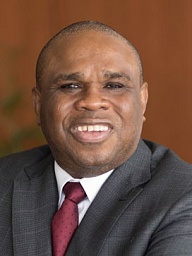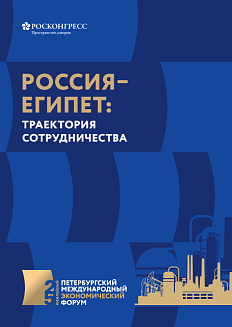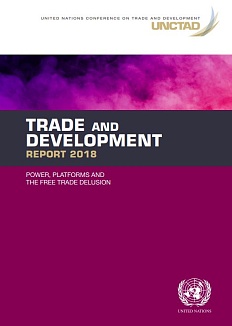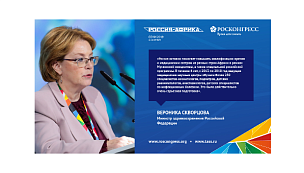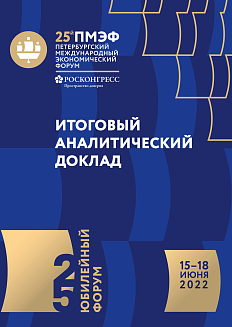For most of its post-independence period, Africas trade and economic partnerships were largely dominated by Organisation for Economic Cooperation and Development (OECD) countries, especially Western Europe. However, over the last two decades, many other countries, led by China and India, have grown their trade with Africa, reflecting increasing investment and growth opportunities in a region which has been consistently rated as one of the fastest-growing in the world over the last decade. This diversification of trade partners has been beneficial to Africa, sustaining more resilient economic growth since 2000. Following that trend, the relationship between Africa and Russia, which played a key role in the struggle for independence across Africa, has been gaining momentum. Cooperation between the two partners is strengthening with bilateral trade flows witnessing a significant jump of 68 percent between 2017 and 2018.

Opportunities for partnerships of mutual benefit are significant. Russia can broaden its investment and trade with Africa beyond the natural resources sector to include healthcare, energy, rail, aviation, ICT, agriculture and other infrastructure goods and services. These could accelerate the process of structural transformation and the diversification of sources of growth and exports needed to enhance Africas integration into the global economy. It will also provide timely support towards the implementation of the African Continental Free Trade Area Agreement, which depends on modernization and expansion of infrastructure to support cross-border trade and growth. At the same time, the growing partnership could provide the opportunity for Africa to further diversify the geographical destination of its exports and mitigate the risks associated with the economic fluctuation in traditional markets and keep Africa on a sustainable economic growth trajectory. Despite the relative increase over the last few years, Africa-Russia bilateral trade remains very low, offering tremendous opportunities for growth under growing economic cooperation. By expanding trade and investment relations we expect that Russia will facilitate the transfer of technology in many sectors. We hope that Russia will support the acquisition of technical skills by the young African population.
Could you please tell us about the most important Russian-African projects in recent years?
Although Russia-Africa trade and investment relations date back several decades, joining the shareholding of Afreximbank by Russian Export Cneter (REC) in late 2017 provided an institutional framework and a springboard for the effective promotion of Russia-Africa economic cooperation. Under that framework, Afreximbank and REC have been working together to support the implementation of projects in a wide range of sectors and industries across the continent, including the financial sector, the mining industry, chemicals/fertilizers, steel manufacturing, and infrastructure, especially energy and railways.
In less than two years of collaboration between Afreximbank and REC, projects and trade deals amounting to over USD 5 billion have been supported or are under consideration. There are mining projects with added processing capacities in Sierra Leone and Zimbabwe as well as the import of fertilizers by Zambia and Zimbabwe, while discussions are under way for the establishment of petrochemical plants in Angola under joint ventures between Russian and Angolan entities. Following the execution of the MOU in November 2018, Afreximbank, REC and Russian Railways are currently building and screening potential projects for consideration by Russian Railways. Priority will be given to multi-country projects that are commercially viable themselves.

What sectors and market segments do you think could be the most effective for cooperation?
Africa views Russia as a partner with which it can build a strong and mutually beneficial relationship in trade, finance and investments, among other things. Africas partnership with Russia is already visible in a growing number of strategic sectors, industries and markets. The impact is directly felt in the balance sheet of large Russian corporations investing in Africa and those engaged in bilateral trade between African countries and Russia. In addition to effectiveness from the execution of deals, we are giving more and more consideration to the impact and effectiveness of development. More specifically, to what extent the growing cooperation between Russia and Africa could accelerate the diversification of sources of growth and trade and reduce the risks associated with excessive dependency on natural resources across Africa. Industrialization and export development are one of the key pillars of Afreximbanks Fifth Strategic Plan. They are also central to the AU Agenda 2063 and will further consolidate Russia-Africa relationships in the long term.
Could you please describe the state and level of economic development in the African region? The African market is not very well known to Russian companies. Which countries are most open to trade relations with Russia?
Africa has experienced high and continuous economic growth in the past decade, supported by improving macroeconomic management, growing domestic demand and favourable commodity terms of trade, increasing Africa-South trade and high returns on investment which are sustaining the growth of both cross-border African trade and foreign direct investment. Last year, six of the ten fastest-growing economies in the world were in Africa and Afreximbank growth forecasts show that Africa will be the second fastest-growing region of the world in 2019. These growth prospects will be further enhanced in the medium and long term under the African Continental Free Trade Area (AfCFTA) Agreement, which has established one of the largest single markets for goods and services in the world with a population of 1.2 billion and combined consumer and business spending of about USD 6.7 trillion by 2030.

What barriers (risks) could restrain mutual trade (both from African countries and from Russia)? How can Russian entrepreneurs protect themselves from risks on the African continent?
The business climate in Africa has improved remarkably during the last decade, reflecting the improving macroeconomic environment and regulatory regimes. These positive developments have created an enabling environment for private capital inflows into the continent. Consequently, traditional risks associated with political and business environments have been reduced significantly. The major bottleneck in our view relates to the lack of knowledge about the potential trade and investment opportunities among Russian and African businesses. For instance, while the energy infrastructure gap in Africa is enormous, Russias contribution to the development of this infrastructure is rather paltry, not because of limited capacity but due to limited knowledge about the existence of viable projects across the continent. We at Afreximbank could serve as the conduit for major Russian entities seeking such opportunities in Africa. Not only is Afreximbank providing twining (B2B) opportunities, it is also providing risk mitigation in the form of Country Risk, Investment, Contract Availability Guarantees and other forms of risk coverage to investors interested in African markets. Working with the Russian Export Center, trade and investment risks Africans may face in Russia or Russians may face in Africa can be effectively managed.

In 2019, many events significant both for Russia and Africa are planned in Russia. Tell us about the importance of these events for the development of economic relations. What do you expect from these events?
2019 is a defining year for RussiaAfrica relations, capping a sharp recent rise in trade and investment flows between Russia and Africa. The St. Petersburg International Economic Forum (SPIEF) held in St. Petersburg and Afreximbanks Annual Meetings held in Moscow have laid a strong foundation for the much-anticipated first-ever RussiaAfrica Summit and Economic Forum, which will be held in Sochi this year. It is perhaps the first time that so many significant international events involving Africa have happened in a single country in one year, under the auspices of His Excellency, President Vladimir Putin. The Afreximbank Annual Meetings created a platform to begin addressing the information and knowledge gap, which we consider fundamental to the promotion of trade and economic cooperation between Russia and Africa. It also allowed Russia to showcase investment opportunities and potential, particularly in the technology, energy, transport and related infrastructure sectors. The Sochi Summit and Forum, which have attracted very high- level government officials from Africa, will certainly lay the foundation for broader Government to Government (G2G) and Business to Business (B2B) collaboration over the medium to long term.


